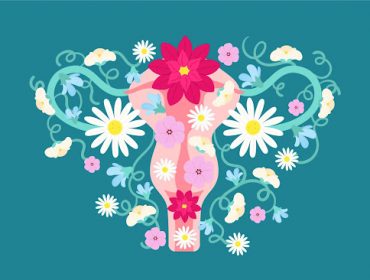STD After Hysterectomy
If you’ve had a hysterectomy, you might be wondering if it will affect your ability to get sexually transmitted diseases (STDs). The short answer is that yes, you can still contract an STD after a hysterectomy. The long answer is that the procedure removes the uterus and cervix while leaving other parts of the reproductive tract intact. This means that there are many different places in which bacteria or viruses can hide out and cause infections or even cancer if left untreated. So how do you know if your symptoms are caused by an STD? And what do they look like? Let’s explore these questions together!
Yes, a woman can still get a sexually transmitted disease (STD) after hysterectomy.
Yes, it’s possible. Women can still get sexually transmitted diseases (STDs) after a hysterectomy. In fact, women who have had their uterus removed can contract every STD in existence and vice versa.
The chances of catching an STD after a hysterectomy are still high for some women due to the possibility of sexual contact or exposure to bacteria or viruses from their partner’s body fluids.
The hysterectomy removes the uterus and the cervix, but it does not remove the ovaries or the fallopian tubes.
The hysterectomy removes the uterus and the cervix, but it does not remove the ovaries or fallopian tubes. These organs are still susceptible to STDs after a hysterectomy.
Every STD has its own unique symptoms, ranging from mild to severe.
All STDs have unique symptoms, ranging from mild to severe. Some people may show no signs of an STD and others may experience significant symptoms such as fatigue, fever, or muscle aches. The severity of the infection depends on where the infection is located in your body and what kind of bacteria or virus infected you.
Some STDs may cause no noticeable symptoms in women, but they can be spread during sexual intercourse.

Some STDs may cause no noticeable symptoms in women, but they can be spread during sexual intercourse.
Some STDs have mild or no symptoms at all. Some infections can cause serious health problems that may not appear for years after you are infected. Many people with an STD will not know they are infected unless they are tested for it. This is why regular testing and screening is important if you have had vaginal, anal or oral sex with another person during the past year.
The two most common sexually transmitted diseases (STDs) that affect women are chlamydia and gonorrhea. They are spread from one person to another during vaginal sex, anal sex, or oral sex when someone comes into contact with a discharge from the vagina or anus through direct contact (fingers), objects used by partners such as vibrators, dildos (sex toys), etc., or unwashed hands of an infected person who has touched themselves after wiping their genitals on something like toilet paper towels in a public restroom; these transfer germs onto things like door handles which then get transferred back onto your hands when you touch them later on down the line!
Women who have had a hysterectomy are just as susceptible as other women to develop STDs that affect their reproductive organs.
- It is important to remember that women who have had a hysterectomy are just as susceptible as other women to develop STDs that affect their reproductive organs. The removal of the cervix and uterus does not protect you from contracting an STD, even if you do not have a vagina.
- There are many different types of sexually transmitted diseases (STDs), which can be caused by bacteria, viruses, or parasites. STDs are spread through sexual activity with an infected partner and can affect both men and women in different ways depending on the type of infection they contract. Some infections may require only simple treatment while others may cause complications requiring hospitalization.
- Not all STDs are curable; some require long-term treatment with antibiotics or antiviral medications prescribed by your doctor if the infection was caught early enough before irreversible damage was done to your body’s systems due to chronic inflammation caused by untreated infections such as HIV/AIDS (human immunodeficiency virus/acquired immune deficiency syndrome) or hepatitis B/C (hepatitis B virus).
The most common STDs after hysterectomy include chlamydia, gonorrhea, syphilis, genital herpes and HPV.
The most common STDs after hysterectomy include chlamydia, gonorrhea, syphilis and genital herpes. Gonorrhea, chlamydia and syphilis can be treated with antibiotics. Genital herpes is a lifelong condition that you may have to manage with medication or other treatment.
Having a hysterectomy does not mean you can never again contract an STD.
STDs are infections that can be transmitted through sexual contact. There are many different types of STDs, but the most common after a hysterectomy are chlamydia, gonorrhea, syphilis and genital herpes (HSV). Some STDs may cause no noticeable symptoms in women, but they can still be spread during sexual intercourse by an infected person to their partner. This makes it important for you to get tested regularly after any surgery on your reproductive organ.

If you do contract an STD after having a hysterectomy or suspect you have one then it is important that you get tested immediately. Inform your primary care physician of any positive test results. Our own medical staff will prescribe you medication for any disease or infection you may have.
The good news is that there are many ways to decrease your risk of contracting an STD after a hysterectomy. The best way to prevent STDs is by using condoms during sexual intercourse and being in a monogamous relationship with someone who has been tested for STDs.
Reach out to any of our STI/STD testing experts if you have any questions. STD Testing
Medically Reviewed by Julie Hutchinson, MD on August 7, 2023
Secure and Confidential
STD testing services
The fastest results possbile - available in 1 to 2 days

Tagged
Categorized As
Author: Esther Jordan
Esther Jordan has been a writer ever since she can remember. She has always loved the free gift of self-expression through journaling, creating stories, and sharing life experiences in front of audiences. Public speaking and creating content has been a strong suit of hers since high school. Immediately after college, she received a paid position as an search engine optimization (SEO) writer in 2010 when SEO was still a very brick and mortar concept for a lot of small businesses. It was a time of do-it-yourself websites and online magic that everyone wanted and either referred to it as SEO or pay-per-click (PPC).




